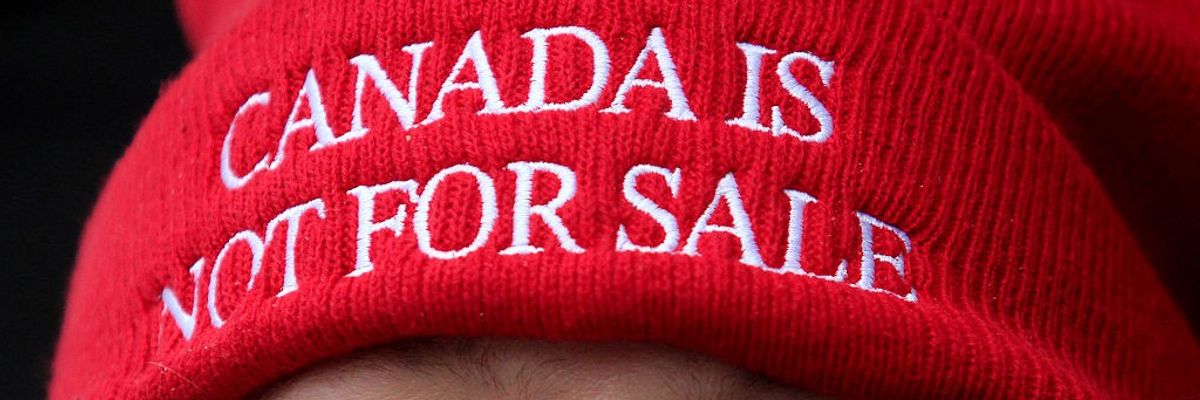Do Americans who want to acquire Canada understand what we would be getting? Do they understand how much it would disadvantage Republican politicians?
Few of us know much about Canada. Teaching at a Michigan college less that 75 miles from Canada, I used to poll my freshman class to determine what they knew about the world. When I asked them to name the capital of Canada, most of them couldn't! Can you name it? If so, congratulations.
My students were intelligent, but just didn't know. But we would consider Canadians who can't identify our capital to be really dumb.
How many people in the U.S. know that Canada is a constitutional monarchy whose head of state is King Charles III of the United Kingdom?
Canadian statehood would make it much harder for Republicans to ever capture the White House again.
How many of us know that Canadians have national health insurance, a fact shared with nearly all other advanced countries other than the United States?
How many know that Canada is a federal system, with regional governments called provinces that are analogous to our states? How many of us can name even a few of those provinces? (British Columbia, Alberta, Saskatchewan, Manitoba, Ontario, and Quebec are the largest ones by population. Then throw in New Brunswick, Nova Scotia, Prince Edward Island, and Newfoundland/Labrador. )
If Canada were to become the 51st state, it would have a greater population than California, currently our largest state. If, instead, each of its provinces were to become states, only Prince Edward Island would have a smaller population than Wyoming, currently our smallest state.
Although Canada has conservative and liberal parties, most of its conservatives would be considered liberals in the United States.
If a united Canada became a single state, it would have the largest number of seats in our House of Representatives, and these seats would predominantly be held by people we would consider liberals. It would have two senators, who most likely would also be liberals.
On the other hand, if the ten Canadian provinces each became a state, each would have two seats in the Senate, mostly held by liberals, a total of 20 more senators.
Remember that the Electoral College through which our presidents are chosen gives each state one vote for each of its senators and members of the House. Canadians would have considerable leverage here.
Now consider the political situation in the U.S. if Canada, one way or the other, became part of our country. It would make it much less likely that we would ever elect another Republican president. And it would be a cold day in Honolulu before Republicans again controlled the House of Representatives.
If the ten Canadian provinces each became a state, each would have two seats in the Senate, mostly held by liberals, a total of 20 more senators.
It would require an act of Congress to admit Canada or its provinces into the Union. Congress has been unwilling to admit Washington, D.C. as a state, because Republicans fear—reasonably—that its two senate seats would always go to Democrats. How much would you bet that these self-same Republicans would support statehood for Canada? Under one scenario, statehood would probably add two safe senate seats for Democrats, and given the other scenario it could add as many as twenty seats for Democrats.
Let me repeat: Canadian statehood would make it much harder for Republicans to ever capture the White House again.
If you believe that Congress could ever support Canadian statehood, please contact me—I can offer you a great deal on a certain bridge.
If Mr. Trump really wants to incorporate Canada into the U.S., would he have recently decreed that English is our sole official language, given sentiments about language in Quebec, where French is the official language?
Given these political realities, what sense can we make of Donald Trump's persistent demands that Canada join the United States? My best guess is that he is trying to divert public attention from other things he is doing.
But I could be wrong. What do you think he is up to?
